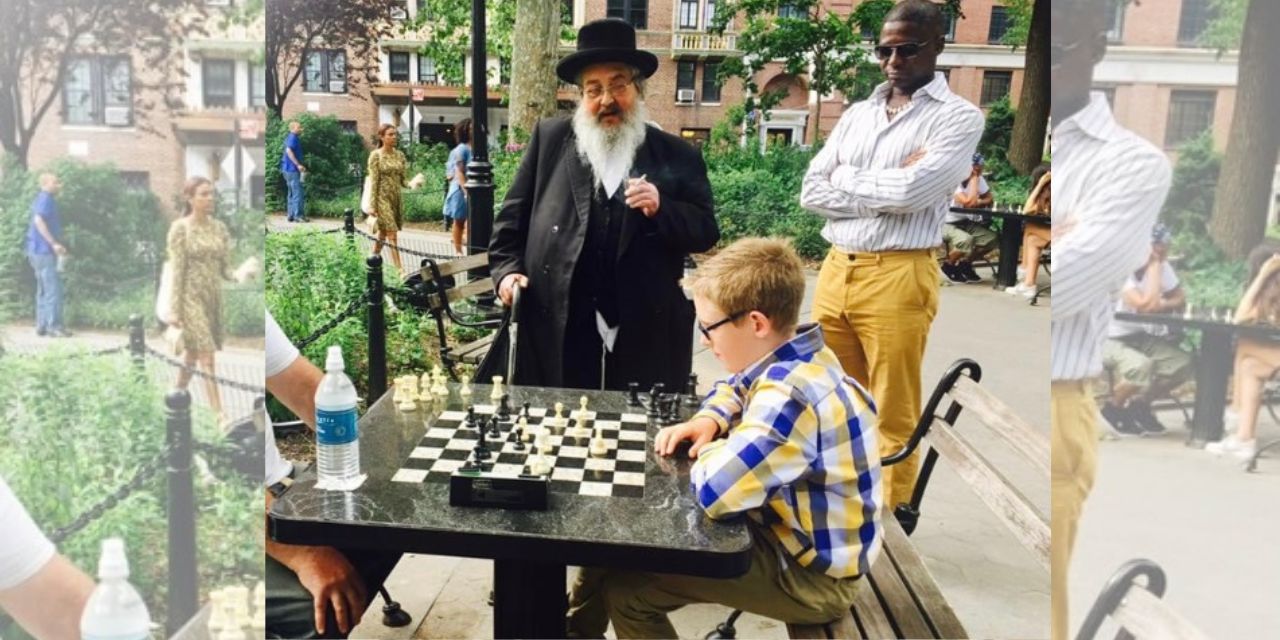Since the 1940s, Washington Square Park in New York City has hosted countless games of competitive chess every day, including matches dominated by Bobby Fischer, the legendary grandmaster who first made world headlines at the tender age of 14.
On a trip to New York City back in 2017, I took our then twelve-year-old son to the park to play. While far from being elite, Riley could and can hold his own. On this particular day, he sat down at one of the tables and began competing with a much older gentleman who bore all the marks of a true hustler. As the game went on, our son had the advantage. But then the older man began acting in a bizarre and erratic manner. Five or six moves later, Riley lost the match.
Or did he?
“I’m not sure what happened,” my son lamented as we walked away. “I had him. But then something changed.”
What had “changed” was the chess hustler had somehow managed to steal back a key piece that Riley had won and had placed on the side of the board. In other words, the guy had cheated.
Why would an old man cheat at chess to beat a twelve-year-old boy?
Cheating has been around forever, of course, a product of sin and a fallen world. Spouses cheat on one another, students cheat in school, adults cheat on their taxes, athletes cheat in competition – and yes, old men cheat to beat young boys at chess.
Professional chess has been roiled and influenced by a variety of high-profile cheating scandals, including a match last week between Norwegian grandmaster Magnus Carlsen and 23-year-old Kazakh grandmaster Alisher Suleymenov.
Carlson, who has accused other challengers of cheating – most notably American grandmaster Hans Moke Niemann last year – lost to Suleymenov, a player most assumed the seasoned veteran would easily dispatch.
“I was completely crushed in my game today,” Carlson tweeted. “This is not to accuse my opponent of anything, who played an amazing game and deserved to win, but honestly, as soon as I saw my opponent was wearing a watch early in the game, I lost my ability to concentrate.”
According to the rules, Suleymenov shouldn’t have been wearing any device. That’s because it’s been suspected that players are receiving suggested moves via watches and forms of implanted technology from people watching via video elsewhere and relying on artificial intelligence to advise.
“These days, cheating is so easy because anyone with access to the internet has the capability to load technology capable of stomping the best chess players on the planet,” writes Andrew Beaton and Joshua Robinson in the Wall Street Journal. “It simply takes a few taps on a smartphone to pull up what’s known as a chess engine on a website or an app, and instantly discover the perfect move in every situation. No human stands a chance against the world’s best engines.”
As a result, officials are now inserting delays when broadcasting chess matches, hoping that will eliminate the ability for a player to receive ill-gotten intel from the outside. Russia’s Ian Nepomniachtchi has half-jokingly recommended competitors play “naked in a locked room” to guarantee a fair match.
Such is just one of the consequences of the loss of character in culture. Once considered a gentlemen’s game, suspicion and paranoia have now gripped the sport.
Our character is who we are when nobody is looking – and it’s developed amid an ongoing series of personal decisions, both big and small.
Whether competitive chess remains a viable sport given the ease and proliferation of cheating remains an open question, but there’s zero doubt our world desperately needs to develop, encourage, and champion individuals of high character.
Legendary basketball coach John Wooden, who directed a metaphorical game of chess on another type of hardwood, once urged, “Be more concerned with your character than your reputation, because your character is what you really are, while your reputation is merely what others think you are.”
Whether you’re playing basketball, checkers – or chess – that’s good counsel.
Photo credit Paul Batura.






